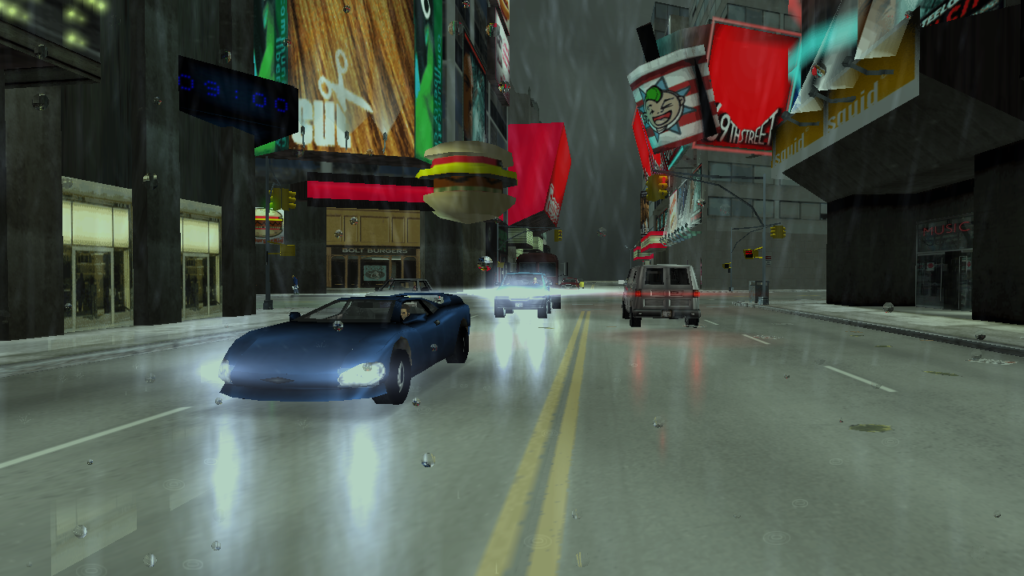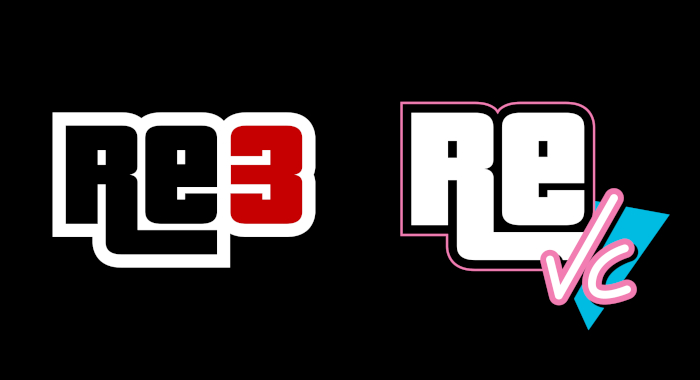
If you’re a regular in GTA social media circles, chances are you’ve heard about the recent events in which Take-Two Interactive, wholly owners of Rockstar Games’ titles, are taking legal action against a group of programming enthusiasts responsible for reverse engineering GTA III and GTA Vice City. The work-in-progress projects, known as re3 and reVC, were first shared on code repository website GitHub at the beginning of the year. Praised by the wider modding community as well as the media, it allowed for modders to make adjustments and improvements to the games at source, as opposed to a “regular” mod, and enabled porting to devices previously unused by the franchise such as the Nintendo Switch and Wii U.
Matters were shortly complicated after they hit headlines, however, as the team were issued with a DMCA takedown notice of copyright infringement via GitHub and the repository was subsequently removed. Without knowing too much about the specifics personally, the idea of reverse engineering is apparently a grey area when it comes to matters of copyright, though this can depend on the regulations of the country in which the code is created and shared from. The team reportedly sought legal advice and then filed a counter-claim to GitHub with the understanding that reverse engineering is fair-use as it would require a legitimately purchased copy of the games to utilise the amended code. GitHub later sided with the modders on the matter, though I’m not aware of the finer details on how this came to be, with re3 and reVC being re-instated and shareable once more.
Some months later to last week, on 2nd September, it was shared across Twitter that further action from Take-Two had been filed to court to determine final resolution to their initial takedown request of the projects. The lawsuit documents, which are available to the public, allege that the projects are subject to copyright infringement and DMCA violations, and Take-Two are seeking financial damages in a trial by jury.
These events, for many, are but another “nail in the coffin” when it comes to modding GTA, or other Take-Two-owned titles, as modders and mod-users ponder their position in what once was a very enthusiastic and dedicated community. Creators that received similar news through DMCA notices of their mods on popular hosting websites ModDB and GTA5Mods back in July are now extremely concerned that they too will be named in a lawsuit in due time, given the fact that their mods are still available on other outlets. The team responsible for the GTA:Underground mod have also notified the community that they are ceasing development out of their fears for being included.
Feedback across the discussion topic on GTAForums has been less than positive, as expected, with the community now at the point where they feel further clarification is needed from Take-Two on the limits of modding due to the actions taken this year against those that feel they are amongst the most hardcore and loyal players of the fanbase. Some modders have gone to the extent of feeling as though it’s time to “retire” from creating mods, and that they can no longer publicly support Take-Two-owned products at the expense of those named in the lawsuit due to the potential financial hardship they are facing.
From a realistic standpoint, those with a better idea of legal matters including virtual law YouTuber Richard Hoeg and game developer Modern Vintage Gamer, have made detailed videos stating that while the moral aspects of suing are questionable, Take-Two as a corporation are within their rights to claim copyright infringement in order to protect their products due to the ToS and EULA of the games themselves prohibiting reverse engineering. They take issue with the lawsuit claiming the projects promote piracy despite informing users they must own a real copy of the games, but they agree that the case will be very difficult to defend from the modder’s perspective due to strict US laws, where the lawsuit has been filed, and counter-claiming a DMCA from corporation of this size would have been ill-advised to begin with.
So where do we go from here? In general, we’re at a bit of an impasse as observers of these events, due to court proceedings already being set in motion. Ideas of boycotts, review bombs and crowdfunding are being thrown around, but my own advice to the community at this moment in time would be to steer clear of inserting ourselves into lawsuits, which are often expensive and complicated enough already, while the team focus on what is required of them. The best course of action is for them to secure legal representation before the case moves forward, in hope of achieving the least imposing outcome for themselves in what may be a clear-cut decision for the jury at trial. It’s entirely possible that an agreement of some sorts could be arranged as well, or a settlement out of court, similar to that of the Red Dead Redemption mod creator whom was sued in 2019, in order to bring closure to the situation as long as the team cease any further attempts at sharing the original projects in the future.
What could this mean for modding overall, is even more difficult to say. It’s not immediately clear whether the flexibility on what kinds of mods are supported will be tightened any further following the recent DMCA takedowns, given this case is specifically against reverse engineering. Spirits are at an all-time low amongst the modding community, who at large agree that while Take-Two “can” take this kind of action, it doesn’t mean that they “should”, since at the foundation of the majority of mods is love for the franchise, not malicious intent. Events have been exposed by several gaming media websites as it stands, though further comment or clarification from Take-Two is not likely given the pending case.
Actions do have consequences**, which is a thought I wish the team had more carefully considered at the beginning of this road, but now is not the time for “I told you so”, even if it feels like things should be different. It would be against my nature however to wish ill-will or financial difficulty on any of the team, so I’m sure the community will join me in wishing them all the best possible outcome in this unfortunate case.
**It has been suggested to me that these particular words are rude and/or appear to be gloating towards the modding community – I would just like to add that this in no way my intention for this article; this commentary wasn’t published to determine what is true or false about the lawsuit itself, but just to lay bare a simple timeline of events from an outsider’s perspective. I admire and support the modding community for their skills and dedication to creating fun projects for other players to enjoy, which has been an integral part of GTANet for two decades. It is simply a difference of opinion on how I would have personally approached this situation if I was involved myself from the beginning, but that does not mean I claim to speak for everyone – others are free to hold their own opinions on how or why things have escalated to this point based on the information shared here and elsewhere. Thank you.
This article will be updated should we learn any further or relevant information.
